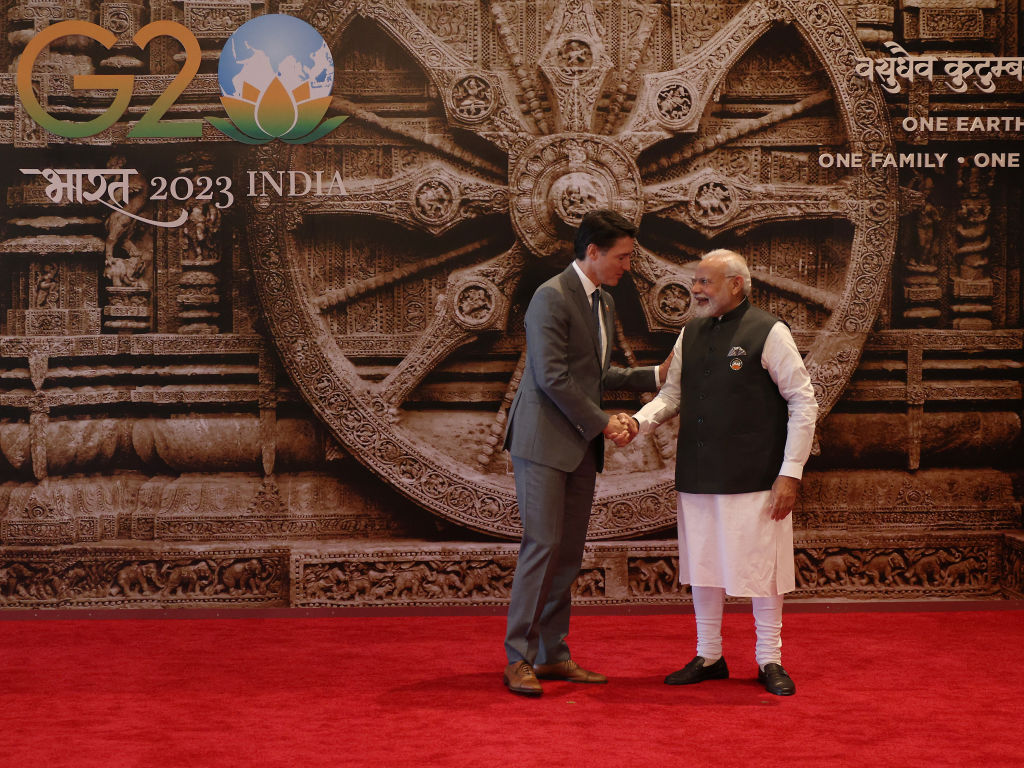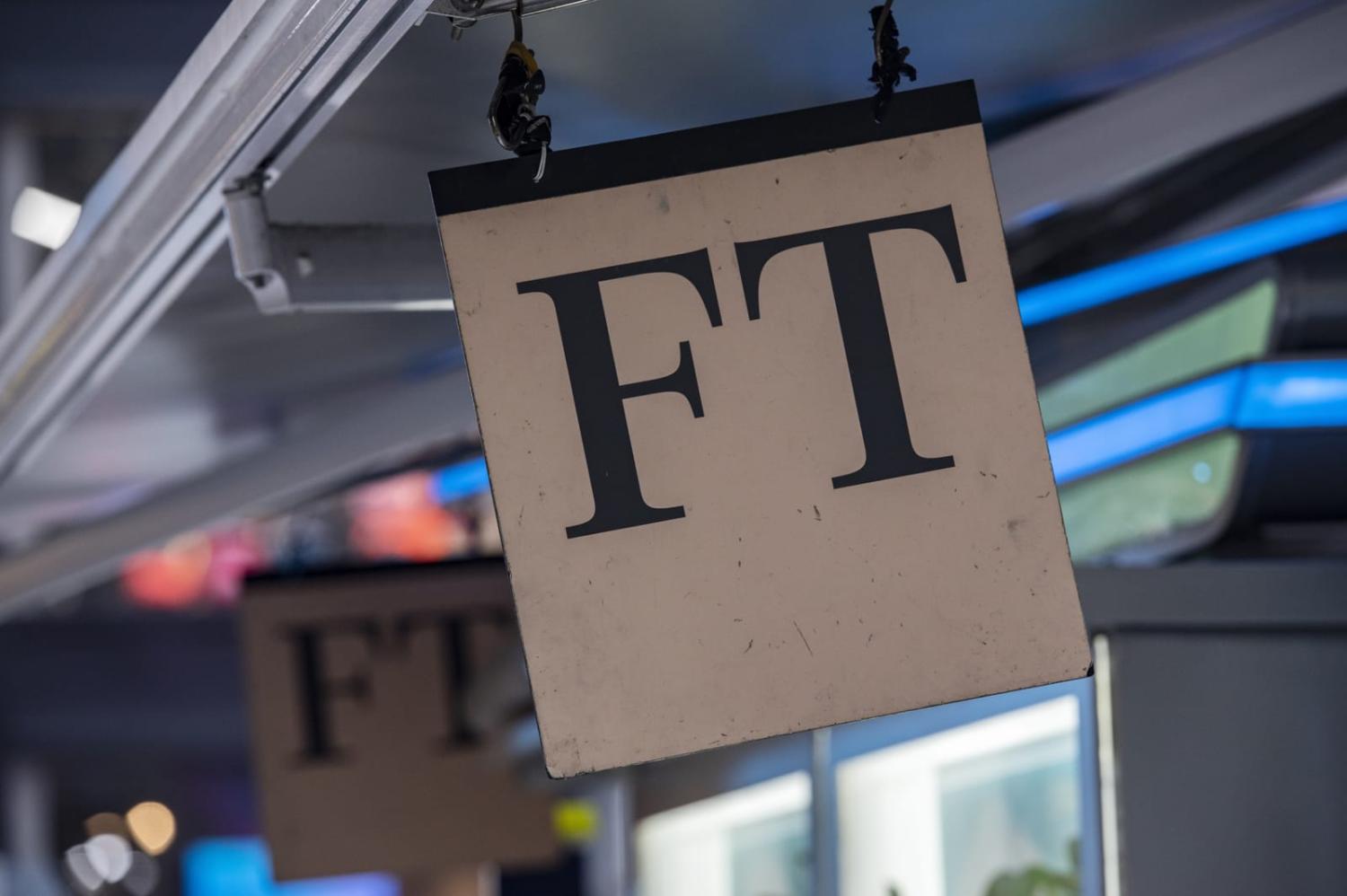Extraordinary new allegations have been levelled against India over an alleged assassination plot in the United States, featured on the front page of today’s Financial Times. The White House has since confirmed it is treating the issue with “utmost seriousness”. It also follows pointed remarks two months ago by Canada’s Prime Minister Justin Trudeau that Indian intelligence agencies were suspected to have had a hand in the killing of a Canadian citizen and Sikh leader in June.
This is delicate territory for Australia, which has enormous ambition for its relationship with India, now increasingly personified in the Quad grouping alongside the United States and Japan.
The FT report details what was said to be a disrupted plot targeting an American and Canadian citizen on US soil. Like the Canadian claim beforehand, this latest allegation in the United States involves India targeting supporters of a separate Sikh state known as “Khalistan”. The Biden administration is reported to have issued a protest after India’s Prime Minister Narendra Modi visited Washington in June. A court indictment has been lodged in a New York court, which if unsealed, will likely include uncomfortable further details.
The story also claims US officials shared information about the plot with allies following the murder in Canada, which sparked concern among them “about a possible pattern of behaviour”.
Those “allies” are bound to be the tight intelligence sharing partnership known as the Five Eyes, including Australia. When Trudeau levelled the Canadian allegations, he also said “we have been working closely and co-ordinating with our allies on this very serious matter.”
India swiftly rejected Canada’s claims, leading to a diplomatic stoush. And indeed, India is quite right to argue that all the allegations so far are based on innuendo and sources. It is ever thus with spies in the shadows.

But dismissing Canada is far easier than the United States. The White House said “Indian counterparts expressed surprise and concern [and] … that activity of this nature was not their policy.” Indian officials have since said “US inputs are already being examined by relevant departments”. India has not leapt to indignant denial, as happened after Trudeau’s statement, but instead in response to the US case implying that criminal syndicates might be involved. The alleged target in the United States was this week the subject of an anti-terrorism case filed in India.
For Australia’s part, asked about the Canadian allegations, the ASIO boss Mike Burgess said last month that there is “no reason to dispute” Canada’s claims of a potential link between the Indian government and the killing of a Canadian citizen. It’s a sure bet his agency was carefully scouring the local scene in Australia, too.
The latest ASIO annual report, released in October, briefly details what the agency called the “disruption [late last year] of a network of individuals undertaking foreign interference in Australia against an Australian citizen and their family.” No country is named, instead only that “their activities were directed by offshore puppeteers.” Ordinarily the culprit might be assumed to be China, given the history of interference allegations. Cambodia might be another to speculate on, following regular reports about the regime’s efforts to intimidate critics in Australia.
But now, astonishingly, adding India to the list seems reasonable.
We know from media reports that in December last year India was highly agitated about Khalistan activists in Australia, which has seen local Hindu temples vandalised, with Modi himself raising the issue with Prime Minister Anthony Albanese during a visit in May.
Foreign Minister Penny Wong was this week in India, before the latest allegations broke. It was telling of Australia’s sensitivity that when a journalist asked about the earlier Canadian claims at a press conference, her Indian counterpart Subrahmanyam Jaishankar responded by saying the issue had been raised, but he was at first reluctant to use the word “discussed”:
“I don’t know if that’s the word I would use, but did we discuss issues between India and Canada? Yes, I spoke about it to Minister Wong … I felt it was important that Australia get our perspective on the issue … I spoke to her about our perspective, and she did listen to me very carefully.”
To which Wong said only, “I do always listen to the External Affairs Minister carefully,” referring journalists to her previous remarks, which sounds a lot like an admission that she didn’t bring up the issue this time around.
Wong’s formula is instead to point to the amount of “strategic trust” between the countries, which she outlined in an extensive sit-down interview with local journalist Suhasini Haidar at The Hindu newspaper, published on Monday. Wong said this trust allows Australia to have “made our views known to our Indian friends” about the principled importance of sovereignty and respect for the rule of law.
“We understand this is a sensitive issue for India, even in relation to Australia,” Wong said. “We have had a good dialogue about this. And I think we are in a place where we both understand the way in which we approach these issues.”
The phrase “strategic trust” has a solemn sound. But more words will be needed to explain keeping faith with an Indian government accused of deadly plotting on the territory of close partners.

